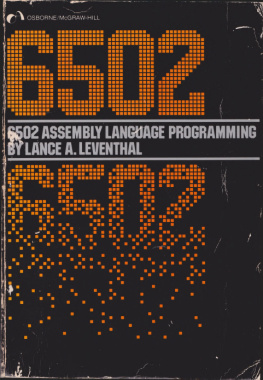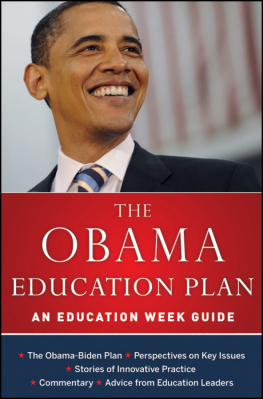I N HIS LETTER introducing his proposal for revamping the Elementary and Secondary Education Act, otherwise known as the No Child Left Behind law, President Barack Obama said he was presenting an outline for a re-envisioned federal role in education. Although he acknowledged that we must recognize the importance of communities and families in supporting their childrens education, because a parent is a childs first teacher, Obamas key education policies have disempowered local communities and parents and centralized education policy and decision making in Washington.
Unlike Obamas well-known and much-discussed health care policies, many Americans are unfamiliar with either the broad themes or the details of President Obamas education policies. There is some awareness, however, that the president has increased federal spending on education through, for example, his stimulus plan, the 2009 American Recovery and Reinvestment Act (ARRA).
Under ARRA, nearly two times the annual budget of the federal Department of Education (USDE) about $100 billion was allocated to improve the nations public school system. Arne Duncan, Obamas education secretary, called this one-time allocation absolutely a once-in-a-lifetime opportunity to lift American education to a new level and make us more competitive in the global economy. Compared with such high-flown rhetoric, the results of this huge federal education spending spree were a bitter disappointment.
The U.S. Government Accountability Office found that instead of funding reforms and raising student achievement, the education-stimulus money simply went to retaining staff and current education programs i.e., preserving the status quo. Other analyses of ARRA education funding have come to similar conclusions. Yet despite this massive failure, the administrations most far-reaching and troubling education program cost a fraction of ARRAs overall price tag.
Initially funded at $4.35 billion, Race to the Top (RTTT) is a federal competitive grant program that was a small part of the bigger ARRA allocation. In their grant applications, states had to address issues such as how they would increase teacher effectiveness, build data systems to measure student success, and turn around low-performing schools. However, it was the important extra points given to states that agreed to adopt common, or national, academic and college-and-career-readiness standards and assessments that raised a large red flag for anyone concerned about the potential nationalization of American education.
T HE N ATIONAL S TANDARDS
Obama, Duncan, and other supporters of national academic-content standards argue that a single set of rigorous national standards and a single national test aligned with them are needed because the current system of individual state standards and tests has given the country a hodgepodge of standards of differing quality. Duncan has stated, If we accomplish one thing in the coming years, it should be to eliminate the extreme variation in standards across America. In order to accomplish this goal, Duncan and the president have chosen a strategy of unprecedented federal activism.
The New York Times has observed that Duncan has far more money to dole out than any previous secretary of education, and he is using it in ways that extend the federal governments reach into virtually every area of education, from pre-kindergarten to college. Yet the Obama administration has tried to be stealthy about its activist and intrusive agenda.
Knowing that creating national standards inside the U.S. Department of Education would never fly, the administration decided to use a third-party product. The National Governors Association and the Council of Chief State School Officers, both influential Washington-based organizations, collaborated to create the so-called Common Core standards. These subject-matter and college-and-career-readiness standards were then used as de facto national standards by the Obama administration.
The Obama administration has tried to be stealthy about its activist and intrusive agenda.
Texas Commissioner of Education Robert Scott condemned this stalking-horse tactic: Having the federal government use Washington-based special interest groups and vendors as proxy for the USDE in setting national curriculum standards and then using ARRA federal discretionary funds to develop national tests for every child in the nation represents unprecedented intrusiveness by the federal government into the personal lives of our children and their families.
States had to sign on to these Common Core national standards to earn critical points under Race to the Top, and these standards are emphasized in President Obamas blueprint for reauthorization of the Elementary and Secondary Education Act. In addition, in early 2011, the president told the nations governors that he wanted states to adopt national standards as a precondition for receiving federal Title I funding for disadvantaged students.
To further camouflage its intentions, the Obama administration has constantly claimed that the Common Core standards are voluntary and are not mandated by the federal government. The administration argues that states could have chosen not to participate in Race to the Top and thus would not be subject to any national standards and testing. Both conservatives and liberals find this line of reasoning singularly unconvincing.
Andy Smarick, a former U.S. deputy assistant secretary of education under President George W. Bush, observed that because states are still desperate for money, its doubtful that they will take a pass on the opportunity to compete for several hundred million dollars.
From the Left, Anthony Cody, a liberal-leaning blogger for Education Week and a former teacher, writes, In todays fiscal climate, when state revenues have declined drastically, federal funding has become an absolute necessity. Though states and local districts technically have the option of refusing these funds, in practice they are totally dependent on them. Eventually, we may end with all of our states volunteering to become centralized, with the [federal] Department of Education at the helm.
Not surprisingly, most states, with the exception of Texas and a few others, agreed to the Common Core national standards in their RTTT applications. As one Wisconsin state legislator opined, This is a race for the money, not a race for the top.
















